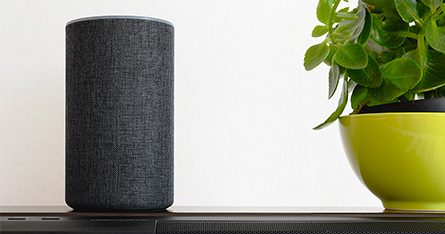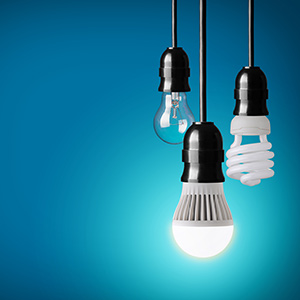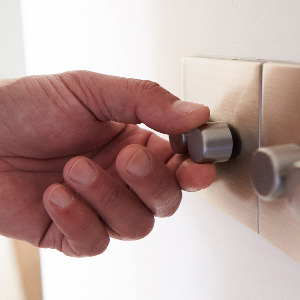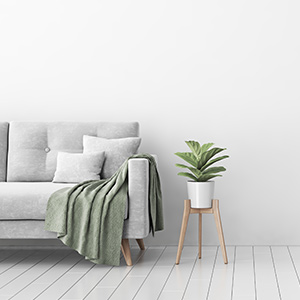Are Smart Homes Secure?
Post By: Ryan King On: 22-08-2018 - Home Automation - Smart Homes
It's 2018, the year that homes become smart. With the rise of home automation devices and voice assistants over the last few years, there have been growing concerns from security professionals and customers over the security of smart homes and devices.
During Q4 2017 it was reported that combined sales of smart home devices topped 12 million devices compared to only 4 million devices in Q4 2016. It is predicted that the growth will continue to climb as more and more devices are developed and more homeowners are adopting the devices.
What is a Smart Home?
A smart home is a home which contains one or more connected appliances/devices which allow them to be remotely monitored, controlled and accessed within the home or anywhere in the world over the internet.
Smart home devices typically connect using Wi-Fi and have a companion app which allows the user to control various variables likes temperature, colour, brightness & more from their smartphone or tablet. These apps have many other functions like allowing the user to create sequences or scenes triggering multiple devices at once or in a sequence, like turning on the light, closing the curtains and playing soothing music, all with one voice command or tap.
What Can a Smart Home Do?
Smart homes can do as much or as little as you want, from turning a plug socket on/off to opening the curtains when it's time to wake up. More and more typical home appliances and tasks are being automated with the introduction of new devices and software.
We have compiled a list of the most popular tasks that a smart home can do:
- Lights, they can be turned on/off, change colours, change brightness and even run on a schedule.
- Curtains/blinds, you can easily open/close your curtains and blinds using simple mechanisms either with your device, voice or a schedule.
- Heating, this is very common with the right smart thermostats. They allow you to control the temperature precisely and even warm a room before you enter the room.
- Security, internet connected smart cameras allow you to remotely check up on your home, report when someone is there and even alert individuals of suspicious activity.
There are many other tasks that can be automated/controlled within your home.
What is Required for a Smart Home?
Starting a smart home project is easy. To begin, you need a Wi-Fi network with internet access and a device to provide smart control. The most common smart devices are voice assistants like Google's Google Home and Amazon's Echo range.
Once you have a basic Wi-Fi setup you can then explore all the devices that can help make your home smarter.

Are Smart Homes Secure?
Short answer, no, but they can be. Taking care when setting up your smart home devices can greatly improve the security of your home. There are four key steps to take to ensure that basic security is set up.
- Ensure that you use a secure password, this is key to both your Wi-Fi network as well as your cloud account for the device. A weak password can easily be cracked and your devices can be compromised. It is recommended to use strong passwords and use a password manager to manage these passwords, like LastPass.
- Connect your devices to a different Wi-Fi network. It is highly recommended to connect your devices to a different Wi-Fi network to all of your normal devices like your laptop, phone & tablet. This keeps all the smart home devices contained within their own private network.
- Permissions, it is key to ensure that only users and services that need access to your devices have the access they need.
- Updates, keep your devices updated with the latest firmware and software to protect your devices. The manufacturers are constantly working on security updates alongside new features and these updates are coming out very frequently. Some even get installed automatically.
Some users will expand their smart home to control as many aspects as possible. These can include; pet feeders, door locks, kitchen appliances, doors and even lawn mowers.
More advanced users may look at dedicated systems/techniques to improve the security of their smart home. There are a number of these dedicated systems and techniques that when setting up and maintained correctly they can greatly improve the security. These include:
- Dedicated Firewalls, a dedicated firewall allows custom rules to be set up to filter out bad traffic and let through the good traffic.
- Zones, zoning a network allows for the devices to only communicate with themselves and other devices if allowed. This ensures that if one device is compromised it does not start infecting other devices on the network. This technique is similar to using a separate Wi-Fi Network but it can provide greater control and segregation.
- Monitoring, there are several devices on the market which allow detailed monitoring of what devices on the network are doing and allows alerting for when issues to arise.
While most homeowners are just going to have one or two devices in their home it is key to make sure that your home is secure. Most homeowners will not need dedicated systems and techniques to secure their smart home, however simple things like passwords, permissions and updates are key to keeping your smart home secure.
Rowse is an electrical wholesaler with access to a number of smart home device suppliers. Call our team today on 01752 774488 to discuss your requirements.
Get More From Rowse Straight To Your Inbox




